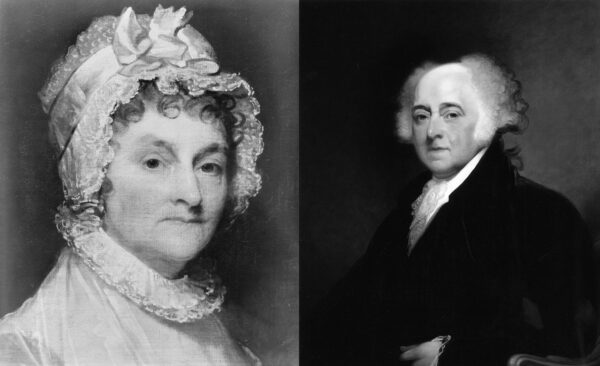July 3, 1776
Last week I wrote about the importance letters once had in the lives of Americans. On this day before the 4th of July, I want to share a portion of a letter John Adams wrote to his wife, Abigail, on July 3, 1776.

First, I will share some context. On June 7, 1776, Richard Henry Lee of Virginia proposed a resolution in the Second Continental Congress for the 13 American colonies to declare independence from Great Britain. On June 11, Congress appointed a committee to write a draft of a declaration of independence. The committee included five men: John Adams, who represented Massachusetts; Benjamin Franklin; who represented Pennsylvania; Thomas Jefferson, who represented Virginia; Roger Sherman, who represented Connecticut; and Robert Livingston, who represented New York. Thomas Jefferson did most of the writing with some edits by John Adams and Benjamin Franklin.
On Monday, July 1, the Continental Congress voted on the resolution for independence. Delegates from Pennsylvania and South Carolina voted against it. New York’s delegates abstained. The delegates from Delaware could not agree on their vote. Congress decided to vote again the next day. On Tuesday, July 2, delegates from 12 colonies voted for the resolution. New York again abstained. Congress declared that the resolution for independence had passed.
John Adams wrote to Abigail the following day, Wednesday, July 3, 1776. He said:
Had a Declaration of Independency been made seven months ago, it would have been attended with many great and glorious effects . . . . the delay of this Declaration to this time has many great advantages attending it. The hopes of reconciliation which were fondly entertained by multitudes of honest and well-meaning, though weak and mistaken people, have been gradually, and at last totally extinguished. Time has been given for the whole people maturely to consider the great question of independence, and to ripen their judgment, dissipate their fears, and allure their hopes, by discussing it in newspapers and pamphlets, by debating it in assemblies, conventions, committees of safety and inspection, in town and county meetings, as well as in private conversations, so that the whole people, in every colony of the thirteen, have now adopted it as their own act. This will cement the union, and avoid those heats, and perhaps convulsions, which might have been occasioned by such a Declaration six months ago.
But the day is past. The second day of July, 1776, will be the most memorable epocha in the history of America. I am apt to believe that it will be celebrated by succeeding generations as the great anniversary festival. It ought to be commemorated as the day of deliverance, by solemn acts of devotion to God Almighty. It ought to be solemnized with pomp and parade, with shows, games, sports, guns, bells, bonfires, and illuminations, from one end of this continent to the other, from this time forward forevermore.
You will think me transported with enthusiasm, but I am not. I am well aware of the toil and blood and treasure that it will cost us to maintain this Declaration and support and defend these States. Yet, through all the gloom, I can see the rays of ravishing light and glory. I can see that the end is more than worth all the means. And that posterity will triumph in that day’s transaction, even although we should rue it, which I trust in God we shall not.
On Tuesday, July 3, through Thursday, July 4, Congress debated the content of the Declaration of Independence Adams, Franklin, Jefferson, Sherman, and Livingston submitted. On July 4, Congress approved the document and ordered printed copies. On July 6, the Pennsylvania Evening Post included the Declaration of Independence in its Saturday edition. On Monday, July 8, Colonel John Nixon read the Declaration publicly in front of the Pennsylvania State House in the area known now as Independence Square.
Fifty members of the Continental Congress signed the Declaration of Independence on August 2, 1776. Five others signed it later in 1776. Thomas McKean, who represented Delaware, signed it in 1777.
John and Abigail Adams would write many more letters to one another during the American Revolution and while he continued to serve his country after the war was over. She was a constant advisor and supporter, which he deeply acknowledged and appreciated.
An excellent wife, who can find?
For her worth is far above jewels.
The heart of her husband trusts in her,
And he will have no lack of gain.
She does him good and not evil
All the days of her life.
Proverbs 31:10-12

